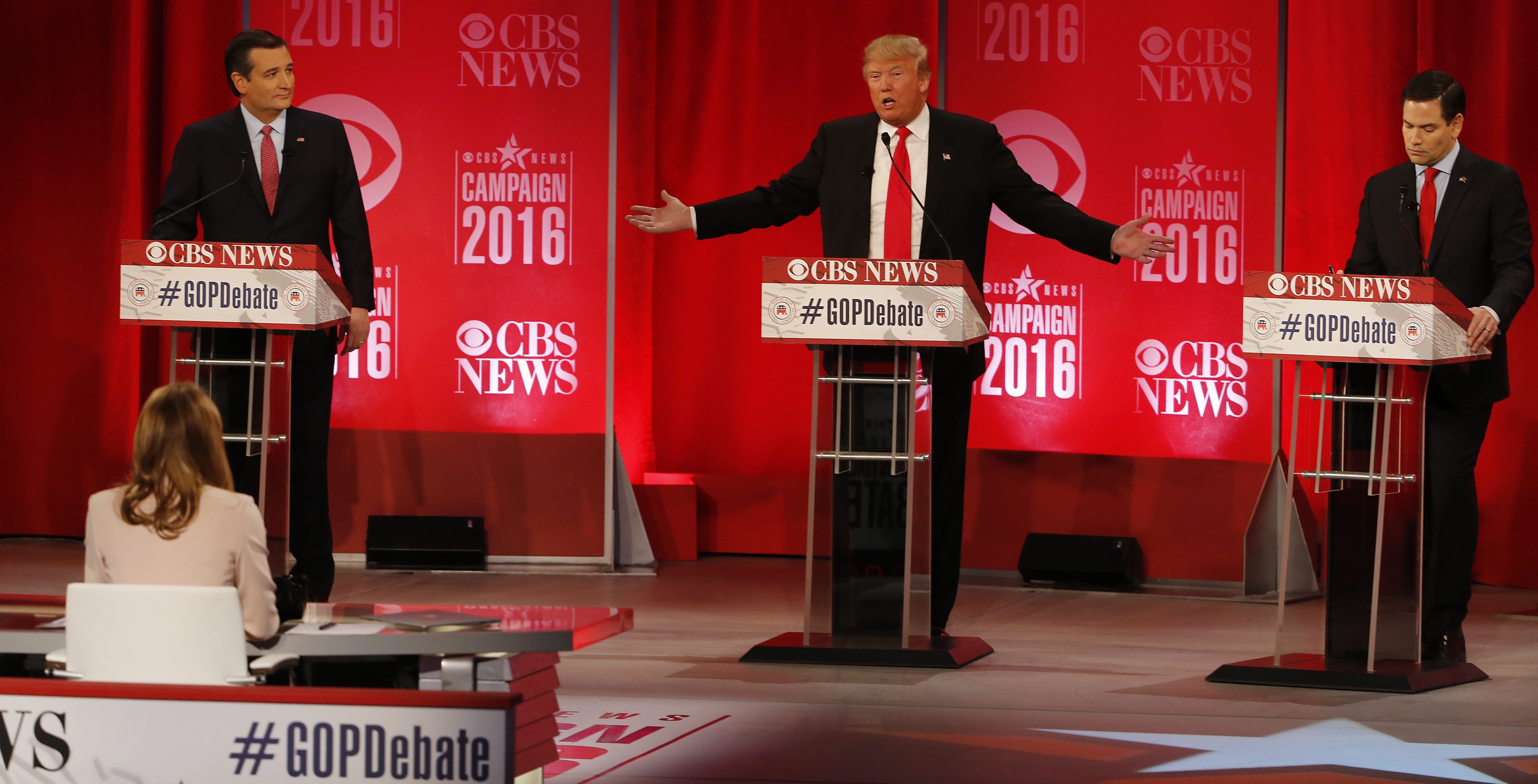
The Spanish test
MORE IN THIS SECTION
By now you’ve read dozens of “Winners and Losers” posts regarding the latest Republican debate and the moment when Marco Rubio jabbed at Ted Cruz for not speaking Spanish, and Cruz responded in Spanish.
Lots of mainstream news media put the exchange in the “win” column for Cruz and the “lose” column for Rubio, thus betraying a lack of Latinos in the newsroom to understand what, exactly, had just happened in front of their eyes.

The best example of this was Fox News, who in an early article about the debate, wrote: “Cruz quickly responded by speaking in Spanish with little trace of an Anglo accent.” Fox News Latino (which unlike its parent site, is staffed with lots of Latinos) on the other hand, characterized Cruz’s Spanish as “a broken and halting Spanish, but Spanish nonetheless.”
And the quality of the Spanish matters to many Latinos in the United States. It is one of a number of (often unfair) measures we Latinos use to gauge each other’s “Latinidad.”
And it is complicated.
Anglos think Spanish-dominant Latinos are less educated than English-dominant Latinos — a measure Latinos entirely disagree with. Instead, many of us equate Spanish-dominance with a quite wonderful quality of education, and equate lack of Spanish as disrespect for a rich cultural and intellectual heritage. What’s more, many of us gauge connection to our community by whether we can speak Spanish well. Or not.
But through no fault of their own many second-, third- and fourth-generation Latinos don’t speak Spanish. Historically it has been tremendously difficult for immigrants (and their children) to hold onto any language other than English if they want to be considered fully assimilated.
There was a bit of intellectual superciliousness in Rubio’s jab at Cruz — after all, Rubio is utterly fluent in both English and Spanish — but since Cruz doesn’t self-identify as Latino or Cuban-American it seems odd that Rubio’s statement got under his skin.
Except ... it calls into question Cruz’s authenticy. And as we’ve seen in this crazy primary season, candidates like Trump and Sanders who are perceived as authentic, are unexpectedly popular.
But that’s not the only reason Rubio jabbed and Cruz parried as best he could. There are Latino votes at stake.
For many in the Latino commentariat, neither Rubio nor Cruz will ever pass a “Latino” authenticity test — because their anti-immigrant stances are at loggerheads with those of the majority of Latinos in the U.S. — and popular belief has it that neither are appealing to any Latino voters out there.
But churches have always known the secret power of language in reaching Latinos.
Go to masses or church services in Spanish in Philadelphia or any other city, and you’ll see many Spanish-dominant Latino citizens who choose to be there because Spanish lends an instant measure of trustworthiness. And you’ll see many bilingual Latinos who choose to be there because the words in Spanish create an instant measure of connection.
Regardless of what is expressed, if you hear it in your own language (or your parents' language) you'll listen in a different way — because it goes straight to heart of who you are and what formed you. Sometimes, even, in spite of politics.
And while Anglos forget that Puerto Ricans are citizens not immigrants, and are blind to the recent influx of Puerto Ricans to the mainland from the island, we Latinos shouldn’t be.
Ideologies are different on the island than they have been on the mainland, and that is changing the shape of Latino politics in the U.S. Is it possible to think of Puerto Rican Republicans? At one time it wouldn’t have been, now ... sure, it’s possible, even probable in some quarters.
The influx of folks from other parts of Latin America has also meant a growth in those to whom speaking Spanish well and easily makes a difference in how they hear a candidate.
And maybe, in how they vote.






LEAVE A COMMENT:
Join the discussion! Leave a comment.